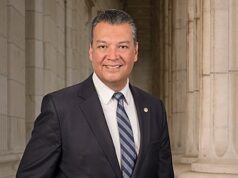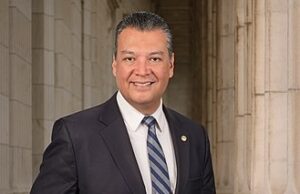Justice Department and Consumer Financial Protection Bureau Reach Settlement with BancorpSouth Bank to Resolve Allegations of Mortgage Lending Discrimination
Settlement Provides Over $10 Million in Monetary Relief Including Loan Subsidies and Compensation for Alleged Victims
WASHINGTON, D.C. – June 30, 2016 – (RealEstateRama) — The Justice Department and the Consumer Financial Protection Bureau (CFPB) announced a settlement agreement today to resolve allegations that BancorpSouth Bank violated the Fair Housing Act and Equal Credit Opportunity Act (ECOA) by using policies and practices that unlawfully discriminated against African Americans and other residents of predominantly minority communities in the Memphis, Tennessee, area, as well as parts of neighboring Mississippi and Arkansas.
The department and the CFPB alleged that BancorpSouth was illegally “redlining” predominantly minority neighborhoods in the Memphis Metropolitan Statistical Area. Redlining is a discriminatory practice by banks or other financial institutions to deny or avoid providing credit services to a consumer because of the racial demographics of the neighborhood in which the consumer lives. BancorpSouth also allegedly discriminated against African-American applicants in the underwriting and pricing of certain mortgage loans and implemented a policy or practice that required its employees to treat applications differently based on race or other prohibited characteristics.
The settlement agreement, which is subject to court approval, was filed in conjunction with the agencies’ complaint in the U.S. District Court for the Northern District of Mississippi. Under the terms of the settlement, BancorpSouth agreed to pay nearly $7 million in relief for impacted individuals and neighborhoods; invest at least $800,000 in advertising, outreach and community partnership efforts; pay a $3 million civil penalty and amend its policies, standards and training to ensure compliance with fair lending obligations.
“When banks discriminate on the basis of race, they violate our civil rights laws and threaten the foundation of a fair economy,” said Principal Deputy Assistant Attorney General Vanita Gupta, head of the Justice Department’s Civil Rights Division. “The Civil Rights Division will continue to enforce our nation’s fair lending laws to ensure that qualified applicants and borrowers can access credit and invest in their financial future without facing unlawful barriers.”
“Race-based lending practices have no place in the credit market,” said U.S. Attorney Felicia C. Adams of the Northern District of Mississippi. “The U.S. Attorney’s Office for the Northern District of Mississippi will work diligently with the Department of Justice to ensure that impermissible racially-based lending practices are not used to wrongfully deny qualified applicants’ credit.”
“BancorpSouth’s discrimination throughout the mortgage lending process harmed the people who were overcharged or denied their dream of homeownership based on their race, and it harmed the Memphis minority neighborhoods that were redlined and denied equal access to affordable credit,” said CFPB Director Richard Cordray. “Today’s action is a reminder that redlining and overt discrimination are not yet remnants of the past, and that federal enforcement is needed to bring real relief to communities and individuals. The Consumer Bureau and the Department of Justice will continue working together to root out discrimination in the marketplace and ensure consumers receive fair and equal treatment under the law.”
The complaint alleges that from at least 2011 to 2013, BancorpSouth engaged in redlining and thereby failed to serve the credit needs of predominantly minority neighborhoods in the region. In addition to redlining, the complaint alleges that BancorpSouth’s Community Banking Department loan officers were granted substantial discretion in determining whether to approve or deny a mortgage loan – a process called underwriting – and had limited standards in place to ensure that loan officers consistently priced mortgage loans in the same manner or used the same criteria. Such wide flexibility in loan underwriting and pricing resulted in the bank’s denying African-American applicants for mortgage loans at significantly higher rates than white applicants with similar credit profiles. It also resulted in the bank charging African-American borrowers higher interest rates than similarly-situated white borrowers. The complaint alleges that these consumers were denied and charged higher interest rates because of their race, and not because of their creditworthiness or other objective criteria related to borrower risk.
The complaint also alleges that BancorpSouth’s Mortgage Department implemented a discriminatory loan policy or practice of requiring its employees to deny applications from minorities more quickly than similarly-situated white applicants and to not provide credit assistance to “borderline” applicants that other applicants may have received. In an audio recording of a BancorpSouth meeting held in 2012, a manager told loan officers and processors that applications from minorities and others whom the bank viewed as “protected class members” must be “turned down” within 21 days, while white applicants were not subject to this shorter time frame. During this meeting, BancorpSouth employees made several racially insensitive comments followed by laughter.
BancorpSouth’s discriminatory conduct was further evidenced through testing. In 2013, the CFPB conducted matched-pair testing in six different BancorpSouth branches in Mississippi, Tennessee and Alabama to determine whether BancorpSouth treated individuals who inquired about loans differently based on race. The testing results indicated that loan officers in BancorpSouth’s Mortgage Department treated African-American testers less favorably than similarly-situated white testers.
Under the terms of the proposed settlement, BancorpSouth will invest $4 million in a loan subsidy fund to increase the amount of credit the bank extends to majority minority neighborhoods in the Memphis Metropolitan Statistical Area. In order to make residential mortgage loans available to residents of minority neighborhoods that were not adequately served by BancorpSouth, the bank will further invest $900,000 in advertising, outreach and community partnership efforts and open a new full-service branch or loan processing office in a predominantly minority neighborhood. To compensate borrowers harmed by its discriminatory pricing and underwriting policies and practices, BancorpSouth will establish a $2.78 million settlement fund and extend credit offers to unlawfully denied applicants. The settlement will also require BancorpSouth to amend its pricing and underwriting policies; further develop strong internal standards to ensure compliance with fair lending obligations; and provide fair lending training to its employees, senior management and board of directors. The bank must also pay a $3 million civil money penalty to the CFPB.
The Justice Department’s enforcement of fair lending laws is conducted by the Civil Rights Division’s Housing and Civil Enforcement Section. Since 2010, the Civil Rights Division has provided over $1.4 billion in monetary relief for individual borrowers and impacted communities through its enforcement of the Fair Housing Act, ECOA and Servicemembers Civil Relief Act. The Attorney General’s annual reports to Congress on ECOA enforcement highlight the department’s accomplishments in fair lending and are available at www.justice.gov/crt/publications/.
The Civil Rights Division, the U.S. Attorney’s Office of the Northern District of Mississippi and the CFPB are members of the Financial Fraud Enforcement Task Force. President Obama established the interagency Financial Fraud Enforcement Task Force to wage an aggressive, coordinated and proactive effort to investigate and prosecute financial crimes. The task force includes representatives from a broad range of federal agencies, regulatory authorities, inspectors general and state and local law enforcement who, working together, bring to bear a powerful array of criminal and civil enforcement resources. The task force is working to improve efforts across the federal executive branch, and with state and local partners, to investigate and prosecute significant financial crimes, ensure just and effective punishment for those who perpetrate financial crimes, combat discrimination in the lending and financial markets and recover proceeds for victims of financial crimes. For more information about the task force visit www.stopfraud.gov.
A copy of the complaint, as well as additional information about fair lending enforcement by the Justice Department, can be found on the Justice Department’s website at http://www.justice.gov/fairhousing.












